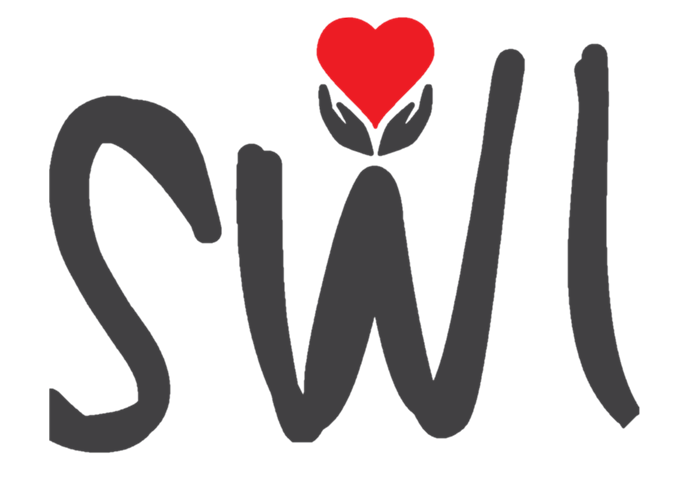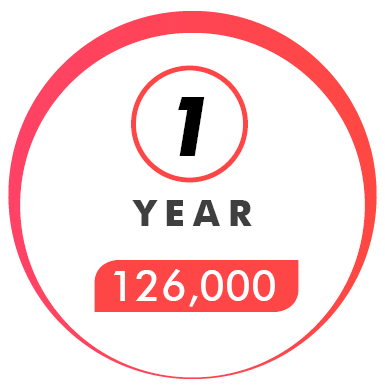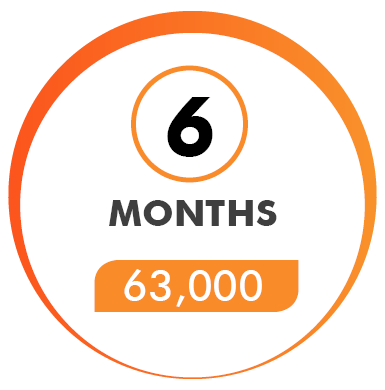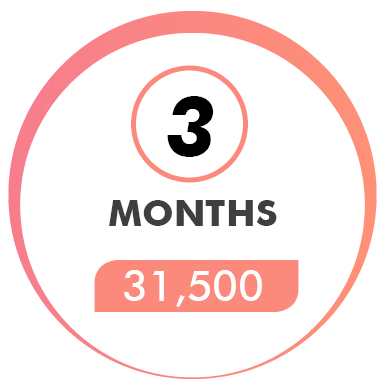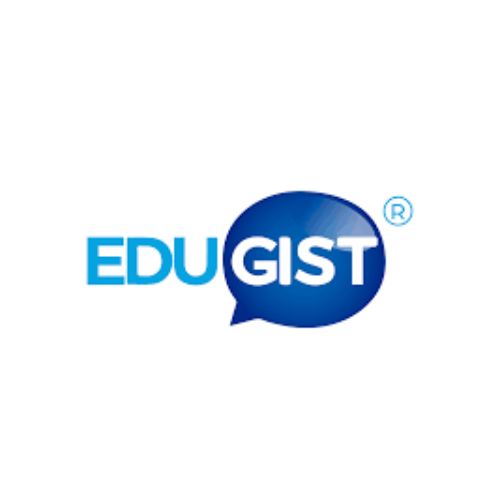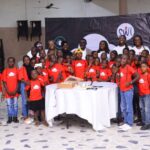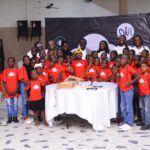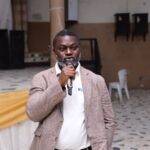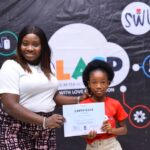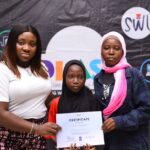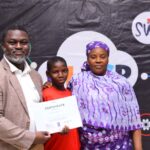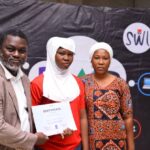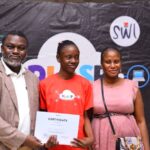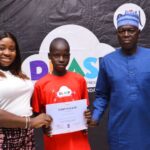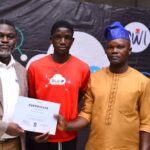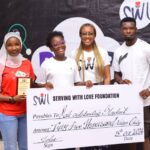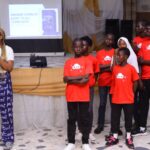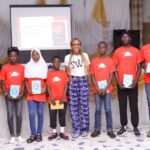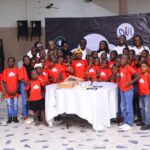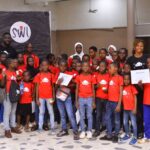DLASP
Equipping children from low-income families in Nigeria with the digital and technology skills.
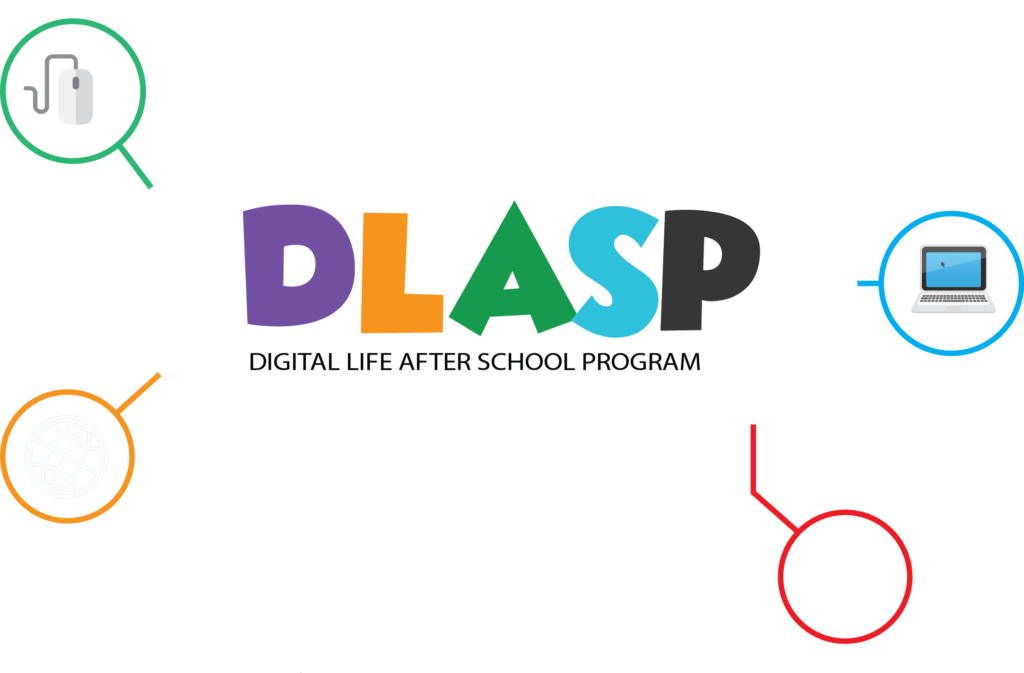
The Digital Life After School Program (DLASP) is an after school and holiday educational program launched by Serving With Love (SWL) Foundation which seeks to equip children from low-income families in Nigeria between the ages of 4 and 16 with the digital and technology skills necessary to be competitive in today’s rapidly evolving work environment.

It is widely recognized that IT and digital skills are essential for the future. However, many public schools struggle to provide these skills due to inadequate infrastructure and a shortage of trained teachers. SWL aims to address this issue through the DLASP program.
Located in the Somolu community of Lagos, the center offers free classes to children in the community who have demonstrated a strong desire and potential to learn and assimilate the teaching. These classes take place in a purpose-built room equipped with computers, software, and trained instructors, ensuring that students receive high-quality education in IT and digital skills.
The program officially launched we have trained more than 100+ children in the basics of computing, programming, coding, UI/UX design, and more. These children have progressed from not knowing how to start a computer to creating stories and paintings, designing apps and web interface, developing website, as well as using Microsoft Word, Excel, and PowerPoint.
We believe this program will help bridge the digital divide and equip underprivileged kids with IT skills that will enable them to thrive and succeed in a competitive tech world. Recognizing that these children come from low-income families, SWL also provides lunch for them before their after-school classes begin.
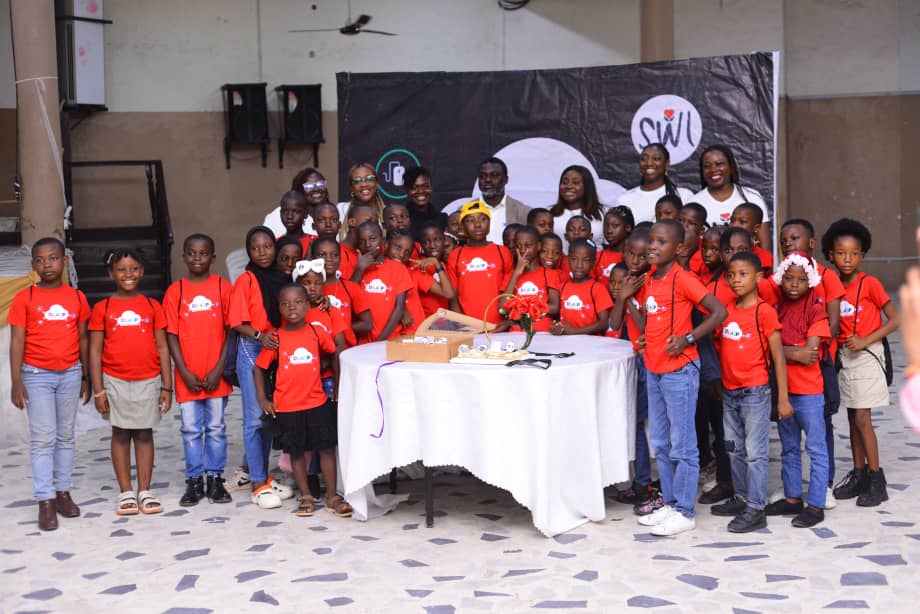
SWL Foundation graduates first cohort of Digital Life After School Program
“Through DLASP, we aim to be a catalyst for change by equipping these children with the skills they need to shape their futures and contribute to the economy.”- Tolulope Alabi, Chairperson of the Executive Council at SWL Foundation.
The SWL Foundation has marked a major milestone with the graduation of the first cohort of its Digital Life After School Program (DLASP), which is aimed at equipping children with essential technology skills.
The event, held on Saturday at Ade Adegbite Event Hall, Shepherd Hill Baptist Church, Obanikoro, Lagos, celebrated the achievements of over 80 children who completed the foundation’s free digital skills training.
The Digital Life After School Program (DLASP) is part of the foundation’s initiative to bridge the technology gap in underserved communities. It offers three to six months of intensive training to children aged 4 to 16, providing them with digital literacy and technical skills to prepare them for future opportunities in the digital economy. The program aligns with the United Nations’ Sustainable Development Goals (SDGs), particularly Goal 4 on quality education and Goal 10 on reducing inequalities.
“The digital landscape is evolving rapidly, and we are committed to ensuring that children from disadvantaged backgrounds are not left behind,” said Tolulope Alabi, Chairperson of the Executive Council at SWL Foundation. “Through DLASP, we aim to be a catalyst for change by equipping these children with the skills they need to shape their futures and contribute to the economy.”
Program Manager Tochi Onuchukwu highlighted the tailored curriculum designed in partnership with NIIT, which provided foundational knowledge in Microsoft Office tools for younger participants and advanced programming courses like Python, HTML, CSS, and web development for older students.
During the graduation ceremony, six exceptional students were awarded scholarships from the Simisola Gbadamosi Scholarship Fund, underscoring SWL Foundation’s commitment to nurturing talent among underprivileged children
Since its inception in 2013, SWL Foundation has positively impacted over 3,000 individuals through education, healthcare, and hunger relief initiatives. The foundation aims to expand its reach, with plans to assist 10,000 families within the next decade. The next cohort of the DLASP program has already commenced its next training cycle, which will run for another three to six months.
Alabi reaffirmed the foundation’s dedication, stating, “Our mission has always been to give children the skills and confidence to rise above their circumstances. Education remains a powerful tool for breaking the cycle of poverty.”
DLASP In The Media
Subscribe To Us
Stay in the know, on the go.
